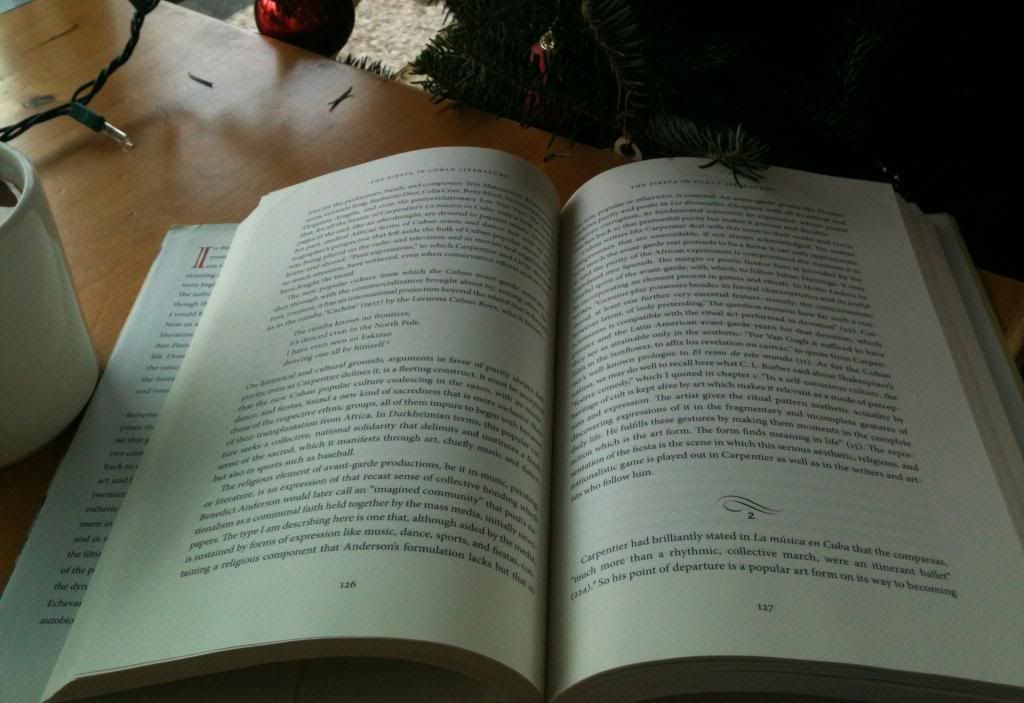
Last year around this time, I read this article on the anti-authoritarian roots of Western Christmas celebrations. The idea is that Christmas, for all its commercialization and emphasis on tradition and harmony, actually has lots of riotous, carnivalesque undercurrents running through it, undercurrents that the article’s author (Laura Miller) connected to last year’s Occupy movement—a connection that might even make more sense with this year’s announcement of Occupy’s rolling jubilee.
‘Tis the season again, and this year I picked up a book with a similar theme: Roberto González Echevarría’s Cuban Fiestas (Yale U P, 2010).
As the title suggests, Cuban Fiestas explores the role of celebrations in Cuban culture. “Fiesta” for González Echevarría is a big category that includes not only celebrations like Nochebuena (Christmas Eve) and Día de Reyes (Epiphany) but also things like baseball games and cockfights. The only criterion for González Echevarría is that the celebrations be national. And the conclusion he comes to is very close to Miller’s in the salon.com article: Cuban celebrations seem to celebrate national unity. “But,” he writes, “this delusion conceals their being not so much a celebration of sameness and identity as a dance of differences.”
The study is solidly rooted in Cuba—but because González Echevarría emphasizes that Cuba is a “modern society immersed in rapid socioeconomic change,” Cuban Fiestas has a lot to say about the general role of festivity in society. The chapter on baseball, for example, made me think about both the festive and commercial functions of American football—especially after this week’s announcements of the December and January bowl schedule (González Echevarría does mention the Harvard/Yale game as the closest thing he’s experienced in US to the carnival atmosphere of Cuban baseball).
Is it perverse to choose an academic text for holiday reading? Yeah, maybe. As González Echevarría reminds us, “The most general and fundamental feature of the fiesta is that it is the opposite of work.” But Cuban Fiestas is super-readable, even pleasurable. González Echevarría, who won a National Humanities Medal in 2011, takes liberties that younger scholars might avoid, and the result is a book that’s as literary as it is academic. It often veers into the realm of memoir: González Echevarría tells us, for example, about necking with a girl named Mercy as Havana celebrated the Revolution in 1959, and he recalls the pigs that his family used to raise in a room behind his childhood house and slaughter every Christmas Eve.
González Echevarría says that he included these stories because he didn’t want to “straightjacket, stifle, and ultimately kill the genuinely fiestero character” of the Cuba he’s trying to portray; I’m not sure they make the book more festive, but they do make it more human. And the book’s humanity is a big part of what makes it such an appealing, if unconventional, take on the meaning of the holidays.
